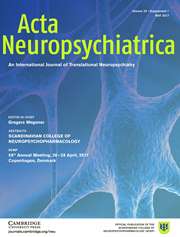“Neural stem cells (NSCs) in the adult mouse hippocampus occur in a specific neurogenic niche, where a multitude of extracellular signaling molecules converges to regulate NSC proliferation as well as fate and functional integration. However, the underlying mechanisms how NSCs react to extrinsic signals and convert them to intracellular responses still remains elusive.
NSCs contain a functional endocannabinoid system, including the cannabinoid type-1 receptor (CB1).
To decipher whether CB1 regulates adult neurogenesis directly or indirectly in vivo, we performed NSC-specific conditional inactivation of CB1 by using triple-transgenic mice.
These results demonstrate that CB1 expressed in NSCs and their progeny controls neurogenesis in adult mice to regulate the NSC stem cell pool, dendritic morphology, activity-dependent plasticity, and behavior.”
https://www.ncbi.nlm.nih.gov/pubmed/30307491
https://academic.oup.com/cercor/advance-article/doi/10.1093/cercor/bhy258/5126794










 “Cannabinoids, acting through the CB1 cannabinoid receptor (CB1R), protect the brain against ischemia and related forms of injury.
“Cannabinoids, acting through the CB1 cannabinoid receptor (CB1R), protect the brain against ischemia and related forms of injury.